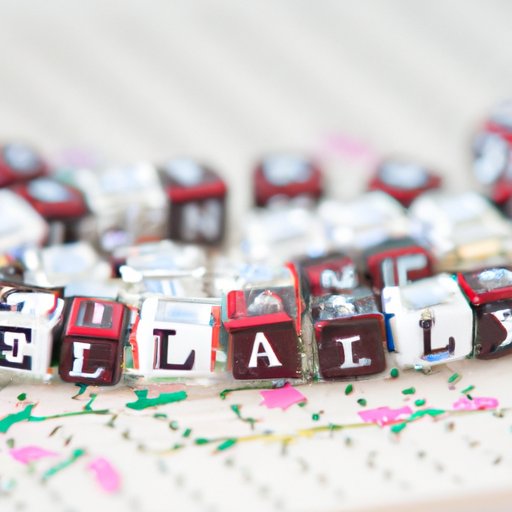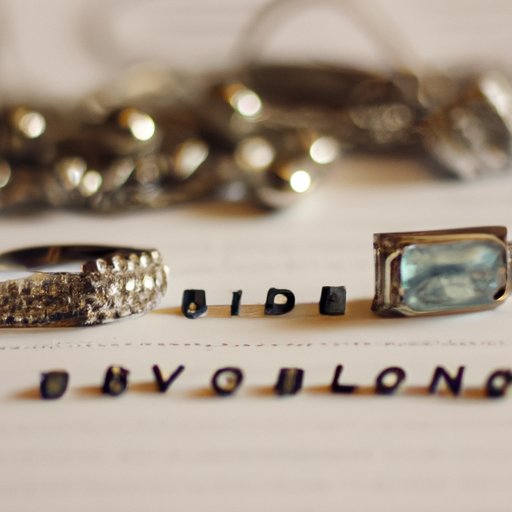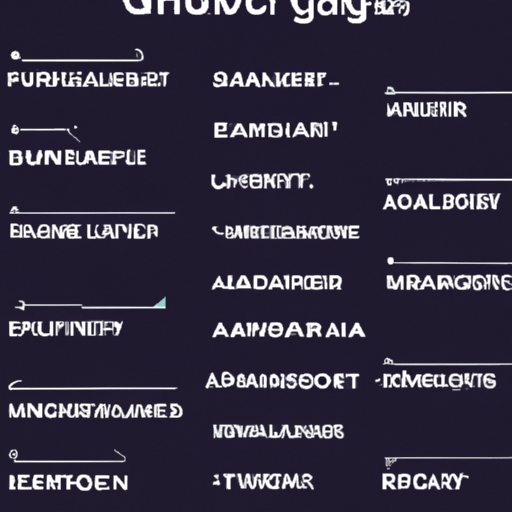The Intricate World of Jewelry Pronunciation: A Comprehensive Guide
Related Articles: The Intricate World of Jewelry Pronunciation: A Comprehensive Guide
Introduction
In this auspicious occasion, we are delighted to delve into the intriguing topic related to The Intricate World of Jewelry Pronunciation: A Comprehensive Guide. Let’s weave interesting information and offer fresh perspectives to the readers.
Table of Content
The Intricate World of Jewelry Pronunciation: A Comprehensive Guide

The pronunciation of "jewelry" versus "jewellery" is a topic that often sparks debate and confusion, particularly for those unfamiliar with the nuances of English dialects. This article aims to provide a comprehensive understanding of the two pronunciations, exploring their historical origins, regional variations, and the factors influencing their usage.
The Roots of the Divergence
The word "jewelry" originates from the Old French term "joiel," which evolved into "jewel" in Middle English. This word, meaning "precious stone," was later expanded to encompass all adornments and ornaments, leading to the creation of "jewelry" in the 16th century.
The "jewellery" spelling, however, emerged from a different linguistic path. It is a direct adaptation of the Middle English word "jewelrie," which itself derived from "jewel." This spelling, prevalent in British English, reflects a closer adherence to the original French root and the historical development of the word.
Regional Variations: A Global Perspective
The pronunciation of "jewelry" versus "jewellery" is primarily influenced by regional dialects.
-
American English: The dominant pronunciation in American English is "jewelry," with the emphasis placed on the first syllable, "jew." This pronunciation aligns with the spelling and reflects the historical evolution of the word in American English.
-
British English: The standard pronunciation in British English is "jewellery," with the emphasis falling on the second syllable, "el." This pronunciation is more closely aligned with the historical origins of the word, reflecting the influence of the French language on British English.
-
Other English Dialects: While American and British English are the most prominent variations, other English dialects, such as Australian English, Canadian English, and South African English, often adopt the British pronunciation "jewellery."
Factors Influencing Usage
Beyond regional variations, several factors influence the choice between "jewelry" and "jewellery":
-
Formal vs. Informal: The spelling "jewelry" tends to be more prevalent in formal writing and publications in American English, while "jewellery" is frequently used in informal contexts.
-
Industry Standards: The jewelry industry, particularly in the United States, generally uses the "jewelry" spelling, aligning with the American English standard.
-
Personal Preference: Ultimately, the choice between "jewelry" and "jewellery" often comes down to personal preference, influenced by individual upbringing, education, and exposure to different dialects.
Importance of Correct Pronunciation
While the choice between "jewelry" and "jewellery" might seem like a minor detail, the correct pronunciation can contribute to a more polished and professional image. It demonstrates a grasp of linguistic nuances and a sensitivity to the cultural contexts surrounding language.
FAQs on Jewelry Pronunciation
1. Is one pronunciation more correct than the other?
Both "jewelry" and "jewellery" are considered correct, depending on the regional dialect and context. There is no universally accepted "correct" pronunciation.
2. Which pronunciation is more commonly used in the United States?
The pronunciation "jewelry" is more prevalent in the United States, aligning with the American English standard.
3. Which pronunciation is more commonly used in the United Kingdom?
The pronunciation "jewellery" is more prevalent in the United Kingdom, reflecting the British English standard.
4. How can I choose the correct pronunciation?
Consider the context, your target audience, and the regional dialect you are using. If in doubt, consult a dictionary or style guide.
5. Does the pronunciation impact the meaning of the word?
No, the pronunciation does not impact the meaning of the word. Both "jewelry" and "jewellery" refer to the same concept of adornments and ornaments.
Tips for Choosing the Correct Pronunciation
-
Context: Consider the context of your communication, including the intended audience and the formality of the situation.
-
Regional Dialect: Be mindful of the dominant dialect in your region and adapt your pronunciation accordingly.
-
Consistency: Choose one spelling and pronunciation and maintain consistency throughout your writing and communication.
Conclusion
The pronunciation of "jewelry" versus "jewellery" is a fascinating example of the dynamic nature of language and the influence of regional variations. While both pronunciations are considered correct, understanding their historical roots, regional differences, and the factors influencing their usage can enhance communication clarity and cultural sensitivity. Ultimately, the choice between "jewelry" and "jewellery" is a matter of personal preference and context, reflecting the diverse and evolving landscape of the English language.








Closure
Thus, we hope this article has provided valuable insights into The Intricate World of Jewelry Pronunciation: A Comprehensive Guide. We thank you for taking the time to read this article. See you in our next article!
